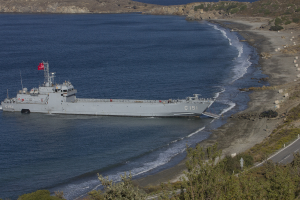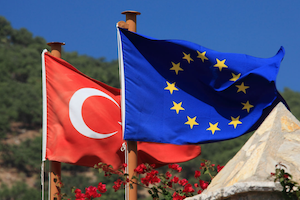Turkey’s Blue Homeland Doctrine: Signaling Perpetual Conflict in the Mediterranean and Rough Waters Ahead
By Cengiz Çandar
August 26, 2020
Turkey’s and Greece’s zero-sum game in dealing with the issues of maritime delimitation and jurisdiction has for decades posed a problem for the peace and stability in their region. The discovery of energy resources in the eastern Mediterranean has raised the stakes significantly. Mutual intransigence, but most importantly the growing power of ultranationalist officers in the Turkish state, is exacerbating tensions. Turkey’s Blue Homeland doctrine, the endeavor to establish Turkish naval supremacy in the eastern Mediterranean, is ultimately a testimony to the clout of anti-Western ultra-nationalism in the Turkish military and state. It ensures that the eastern Mediterranean will be in perpetual conflict.

The EU and De-escalation in the Eastern Mediterranean
By Natalia Konarzewska
June 29, 2020
The discovery of new gas reserves in the region was expected to bring peace and prosperity to the Eastern Mediterranean littoral states but it has created new geopolitical and security risks instead. In April and May this year, Turkey continued with gas drilling within Cyprus' exclusive economic zone which drew new harsh criticism from the European Union. Turkey's assertive stance shows that Ankara is unlikely to abandon its pursuit for hydrocarbons in the region and that it will hence remain on a collision course with Greece and Cyprus. The EU would do well to seek de-escalation and should recognize that circumventing Turkey is not a viable strategy. Otherwise, there is a clear risk that the hydrocarbon dispute in the region will spiral out of control and lead to military confrontation.



